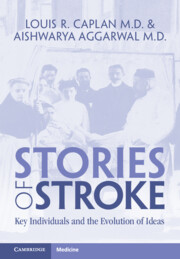Book contents
- Stories of Stroke
- Stories of Stroke
- Copyright page
- Contents
- Contributors
- Why This Book Needed to Be Written
- Preface
- Part I Early Recognition
- Chapter One Hippocrates and Early Greek Medical Practice
- Chapter Two Early Greco-Roman Contributions
- Chapter Three Islamic and Middle Eastern Contributions
- Part II Basic Knowledge, Sixteenth to Early Twentieth Centuries
- Part III Modern Era, Mid-Twentieth Century to the Present
- Part IV Stroke Literature, Organizations, and Patients
- Index
- References
Chapter One - Hippocrates and Early Greek Medical Practice
from Part I - Early Recognition
Published online by Cambridge University Press: 13 December 2022
- Stories of Stroke
- Stories of Stroke
- Copyright page
- Contents
- Contributors
- Why This Book Needed to Be Written
- Preface
- Part I Early Recognition
- Chapter One Hippocrates and Early Greek Medical Practice
- Chapter Two Early Greco-Roman Contributions
- Chapter Three Islamic and Middle Eastern Contributions
- Part II Basic Knowledge, Sixteenth to Early Twentieth Centuries
- Part III Modern Era, Mid-Twentieth Century to the Present
- Part IV Stroke Literature, Organizations, and Patients
- Index
- References
Summary
Hippocrates is generally acknowledged to be the “Father of Medicine.” He is usually portrayed in pictures and sculptures as a grandfatherly, bald man with a serious expression and a small well-trimmed beard. Much about him is unknown and much is myth.
- Type
- Chapter
- Information
- Stories of StrokeKey Individuals and the Evolution of Ideas, pp. 3 - 5Publisher: Cambridge University PressPrint publication year: 2022



